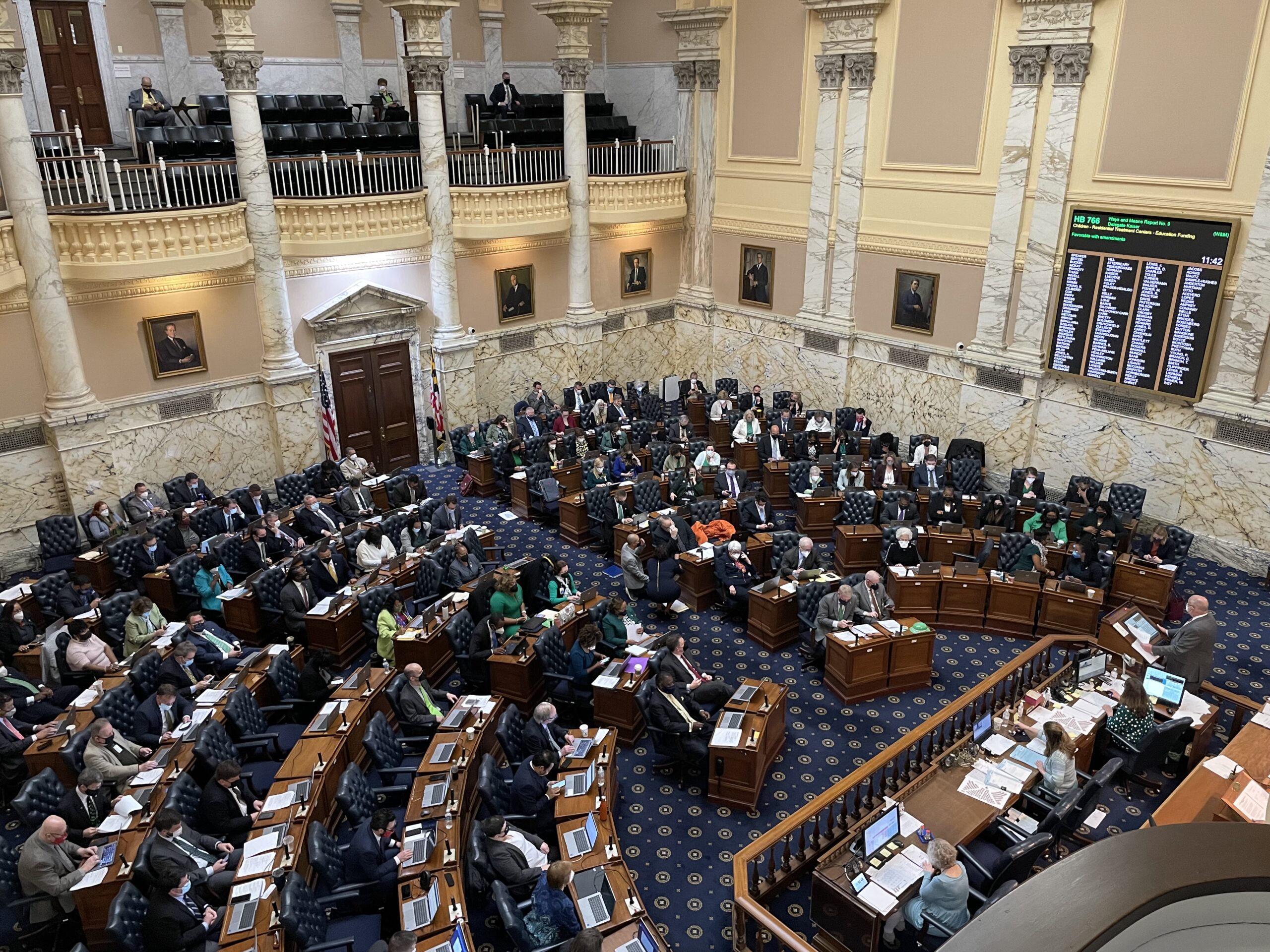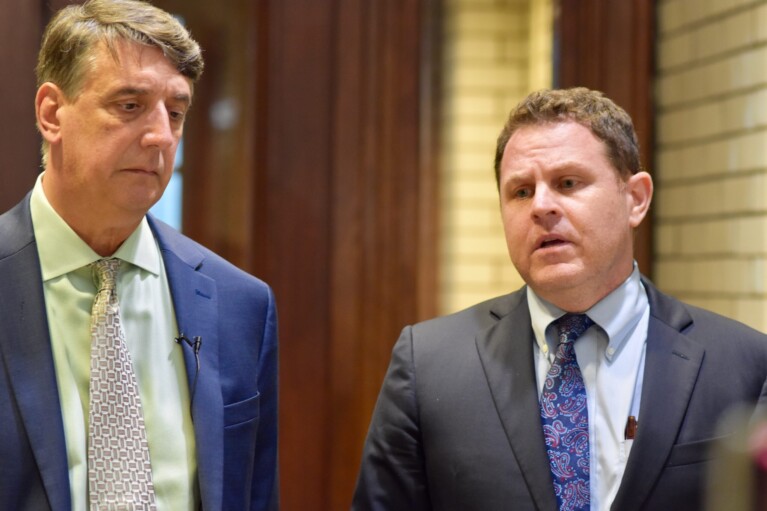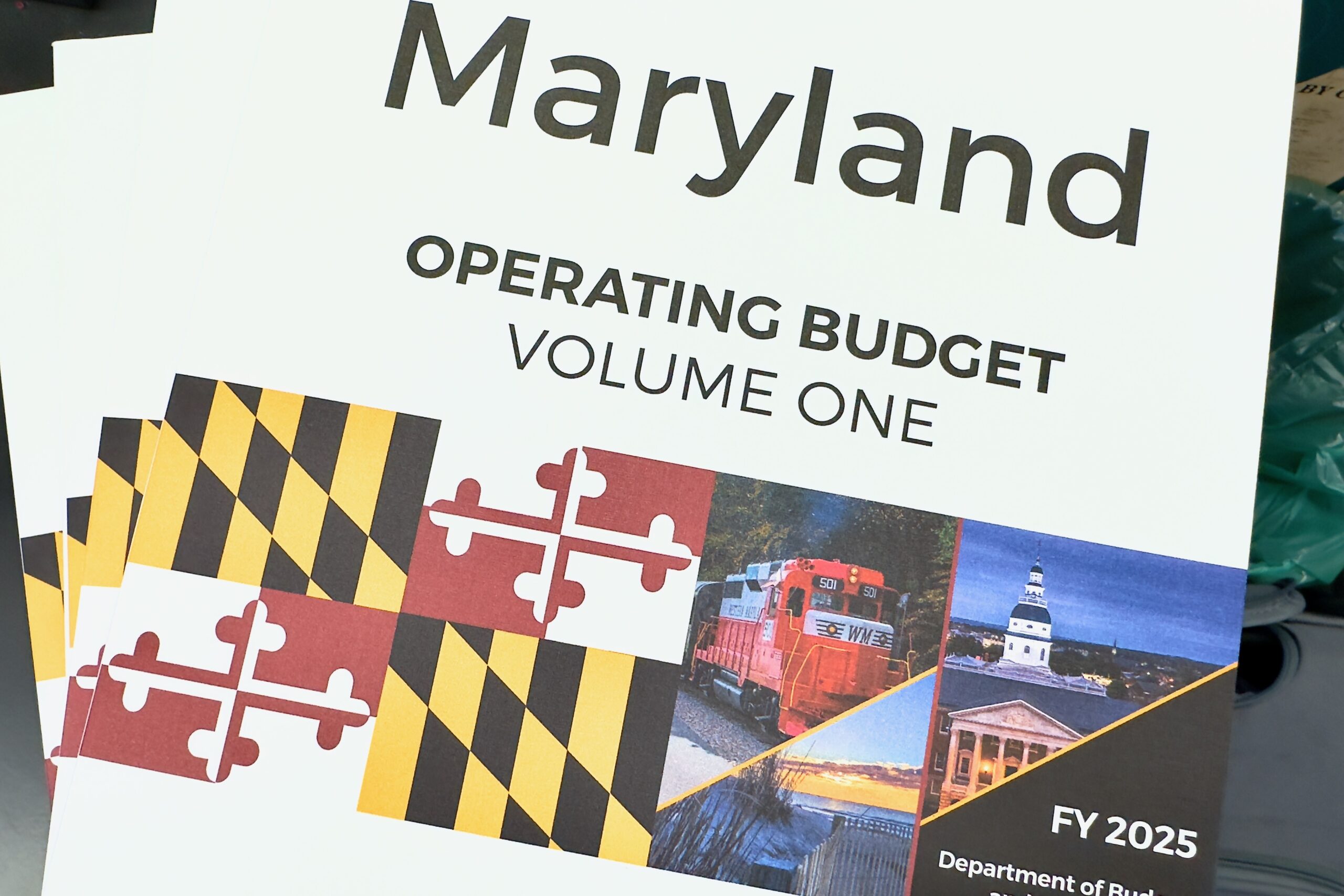Legal Safety Net Program Faces Funding Crunch as Needs Mount

With revenues crushed by the coronavirus pandemic, Maryland’s largest funder of civil legal aid is facing “significant” cuts to its grants.
The Maryland Legal Services Corporation, or MLSC, announced Monday it expects revenue to be down roughly $10 million for the fiscal year that began in July. The organization, which provides grants for civil legal aid for low-income residents, might have to reduce its grants for the upcoming year.
The MLSC gets its money from surcharges on certain court filing fees and interest on lawyer trust accounts. Filing fees plummeted after Maryland courts were forced to shutter in March, with surcharges in July and August halving compared to those same months in 2019. MLSC officials expect filing fee revenues to be down $4.8 million compared to pre-pandemic numbers.
Interest on lawyer trust accounts, a program that raises money for various charitable purposes and helps fund the MLSC, has also suffered from cuts to interest rates. The program mostly relies on interest to generate revenue. With rates near 0% and “expected to remain rock-bottom for the foreseeable future,” MLSC expects to see a $5 million drop in funding this year, according to an MLSC news release.
Deb Seltzer, the corporation’s deputy director, said the cuts would likely impact some of Maryland’s most vulnerable residents. She said the majority of the organization’s grants go toward representing clients who otherwise might not be able to afford a lawyer. MLSC’s grantees have to use the funding to help people with less than half of Maryland’s median income.
“We would anticipate that that number has grown pretty significantly because of layoffs,” Seltzer said. “And it was already a very large portion of the population … Around 22% [of Marylanders] were already eligible even before the pandemic.”
MLSC officials already cut 9% of its funding at the start of the new fiscal year on July 1. Seltzer noted that the cuts come at a time when Marylanders need legal services more than ever, since the pandemic is exacerbating already-existing issues like a lack of affordable housing.
“Having a lawyer by your side, an advocate who knows how the system works, can make a huge difference,” Seltzer said.
Advocates have warned that a recent Centers for Disease Control stay on certain evictions won’t prevent landlords from filing new cases. The CDC order prevents evictions for tenants who meet certain criteria like income requirements ― but renters will need to head to court to prove they qualify for protection.
The vast majority of tenants lack representation in eviction cases, a recent study by Chicago-based consulting firm Stout found. About 96% of landlords have legal representation during eviction cases, but only 1% of renters do, according to the study. Stout estimates that more than 270,000 Marylanders have lost income due to COVID-19, and could be at risk of eviction.
MLSC doesn’t just fund grantees who represent clients in eviction cases: The corporation’s grantees also include Senior Legal Services, which provides legal advice and counseling to seniors in the Baltimore area, and the Sexual Assault Legal Institute, which provides “holistic legal assistance” for survivors of sexual violence.
Guy Guzzone (D-Howard), who previously sponsored a bill that increased funding to the MLSC, said he might introduce legislation to help the corporation during the next legislative session. Guzzone, who heads the Senate Budget Taxation Committee, said he and other legislators previously asked the state Department of Budget and Management to provide more relief funding to the MLSC, but to no avail.
“We’ve been having discussions for several months now about the upcoming problem, and it only seems to have gotten worse,” Guzzone said.
Guzzone said he asked budget officials to use some of Maryland’s COVID-19 relief funding to help the MLSC, but officials said they didn’t have any to spare.
State officials have already spent more than 90% of the $1.653 billion allocated to Maryland as part of the Congressional Coronavirus Relief Fund, Department of Budget and Management Secretary David R. Brinkley told lawmakers last week. Officials are holding back $117 million of that money in case a second wave of the virus rocks the country this winter.
Guzzone’s 2017 bill increased the amount of the abandoned property fund that the MLSC gets every year, and he may look at trying to raise that figure again. In 2017, legislators increased MLSC’s share of the fund from $1.5 million to $2 million. But Guzzone noted that his hands will mostly be tied until the legislature reconvenes next year.
“What we can do right now as legislators is be advocates,” Guzzone said. “That’s where I see my role. And as we move into the session … I am sure that I will have some form of legislation to help support their efforts, hopefully at a sustainable level.”




 Creative Commons Attribution
Creative Commons Attribution